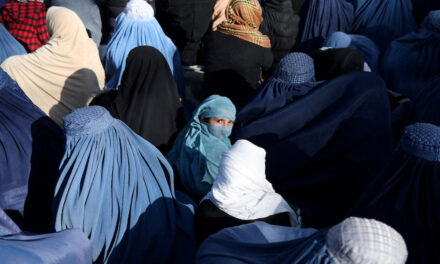We support our Publishers and Content Creators. You can view this story on their website by CLICKING HERE.
The rise of euthanasia in Canada, under the guise of progress, exposes an alarming truth: the abandonment of the fundamental values that should guide any society.
Instead of investing in a health care system that cares for the most vulnerable, the country has opted for a quick and tragic solution: facilitating assisted dying as a response to the deficiencies of its health care system.
The case of Samia Saikali, a 67-year-old grandmother who chose euthanasia after a 10-week wait to be seen by an oncologist, calls into question the moral and ethical direction that Canada has decided to take.
The Value of a Life in Times of Waiting
Samia Saikali began experiencing health problems after a trip in December 2022. Finally, in March 2023, she was diagnosed with inoperable gastric cancer. According to her doctor, with chemotherapy she could have extended her life by at least a year, enough time to enjoy one last summer with her family.
However, the Canadian health system, renowned for its endless waiting times, failed miserably. Ten weeks after her diagnosis, Saikali finally got a consultation with an oncologist, but it was too late. Her health had deteriorated so much that treatment was no longer a viable option. Desperate and with no real alternatives, she opted for euthanasia.
This tragic outcome is not an isolated case. It represents the failure of a health system that prioritizes bureaucracy and inefficiency over human life.
According to the Fraser Institute, in 2022 Canadians waited an average of 25.6 weeks to access a specialist, the longest wait time ever recorded in the country.
Since euthanasia was legalized in Canada in 2016 under the name Medical Assistance in Dying (MAID), its implementation has generated a dizzying increase in cases.
In 2021, more than 10,000 Canadians resorted to this practice, representing 3.3% of all deaths in the country.
Its advocates promote it as an individual right, its rapid normalization has exposed a worrying use: euthanasia as a substitute for palliative care and expensive medical treatments.
In a socialized health care system, where resources are limited and long-term care costs are high, assisted dying seems to have become a cheaper solution.
This not only raises ethical questions, but also opens the door to abuse.
What kind of society allows the most vulnerable to be pushed towards death because the system does not offer them real life options?
The expansion of euthanasia in Canada has disproportionately affected the most vulnerable groups: people with disabilities, mental illness and disadvantaged economic conditions.
Cases such as that of Roger Foley, a Canadian with a neurodegenerative disease who reported having received offers of euthanasia instead of adequate assistance, are a clear warning sign. Foley said that, instead of providing him with the necessary support to live with dignity, the system offered him the option of ending his life.
This is a betrayal of the most basic principles of humanity and solidarity. Euthanasia, rather than being an act of compassion, is being used as an instrument of exclusion and abandonment.
A Failed Model
The case of Canada also highlights the failures inherent in health socialism. Although many see the public health system as an ideal model of equity, the reality is that waiting times, lack of resources and bureaucracy often turn it into a death trap for those who depend on it.
When a health system cannot guarantee timely and quality care, its citizens are left unprotected. Instead of addressing these shortcomings, the Canadian government has normalized euthanasia as an acceptable solution, shifting the cost of its incompetence onto human lives.
Advocates of socialized medicine argue that the system guarantees equal access for all. However, this equality is illusory when access results in long waits that endanger the lives of the most critical patients.
Euthanasia can no longer be used as a palliative for the failures of the health system. It is time for political leaders to prioritize reforms that guarantee access to quality treatments and promote solutions centered on the dignity and well-being of each person.
A truly just society does not abandon its most vulnerable nor push them towards death as the only alternative.
About The Author

 Conservative
Conservative  Search
Search Trending
Trending Current News
Current News 





